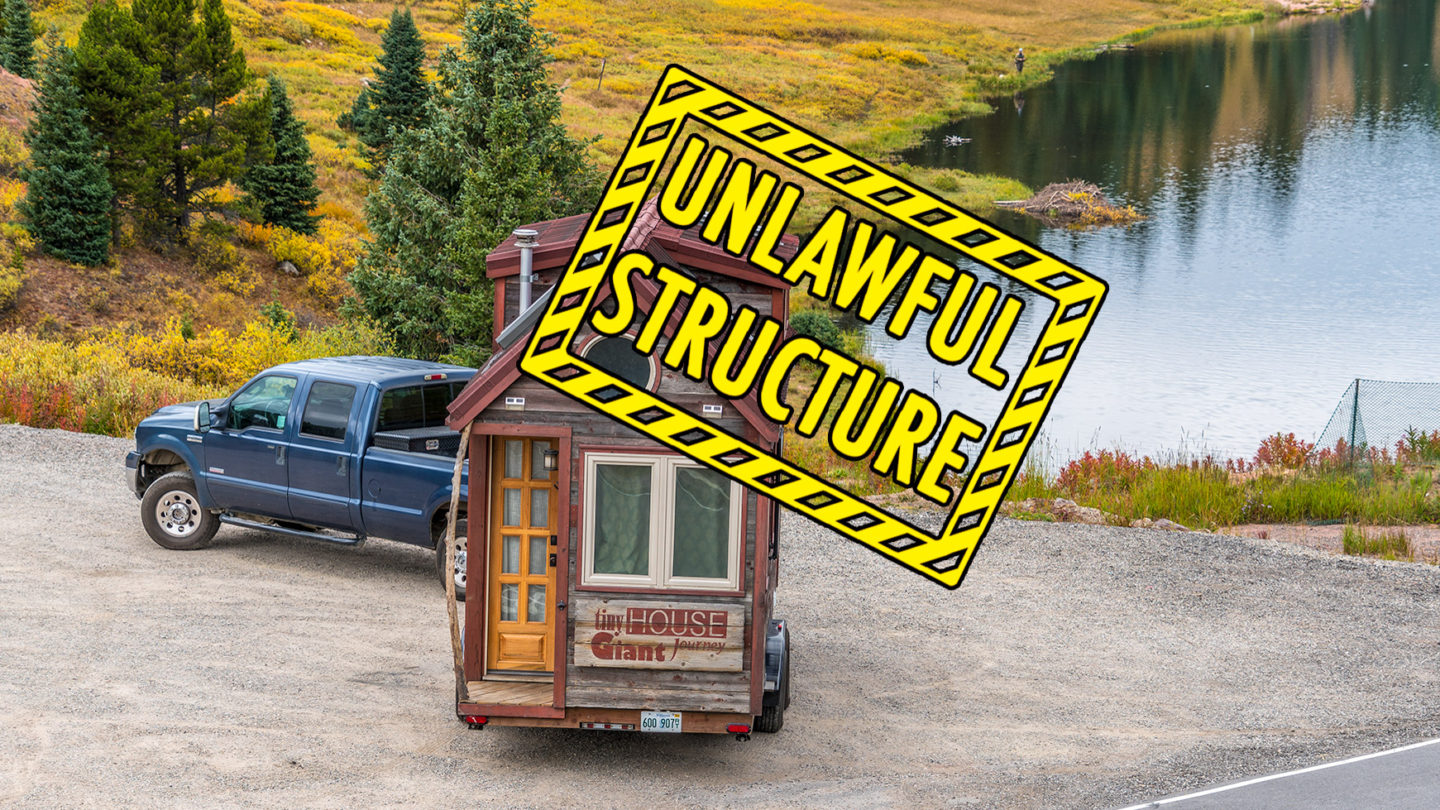Tiny homes banned

Nick Col
Off Grid Living News
More and more people across the United States are uprooting their lives, moving Off Grid for a myriad of reasons – be it ideological, financial, environmental, or political.
Unfortunately, this way of life has proven unpopular with the United States government, especially due to the challenges the shift in thinking poses to major companies. The Off Grid movement faces serious risk of being grounded before take off. How To Survive Off the Grid
Tiny houses, popular due to the lower financial burden upon the owners, low building costs, and ability to be self-sufficient are typically around 400 to 500 square feet in size. Many are equipped with Off Grid power solutions, such as wind turbines, solar panel arrays, and small numbers of early adopters of hydroelectric power.

Additionally, many tiny homes collect their own clean rainwater for consumption, and re-use grey water for watering vegetable gardens. This increasingly means that many tiny homes are able of existing completely Off Grid – attractive to increasing numbers of people, be it for ideological or financial reasons.
However, it appears the self-sufficiency aspect of the tiny house movement has ruffled some feathers in the government, causing a clamp down on tiny homes. At the current time, most states in the United States have a minimum square footage requirement for homes, often causing tiny houses to be associated with a larger, conventional homestead.
Additionally, huge numbers of varying laws across different states require all residential properties to be connected to utilities such as power and sewerage, which is often a prohibitive cost or impossible for tiny house owners.
Lawmakers try to justify these prohibitive laws – often suggesting that allowing tiny houses will lead to a surge of unsightly little cabins plunked down next to traditional homes, even going so far as to describe tiny homes as a threat to public safety in Los Angeles. How To Survive Off the Grid

Thankfully, these excuses have been rebuked by proponents of the tiny home movement. Often, United States lawmakers are very keen to put a stop to any innovations which might loosen the choke hold of the big energy companies over the lives and bank accounts of the American people. For instance, last year the state of Nevada increased tax by 40% on solar customers, to the huge benefit of the energy giant NV Energy, which now holds a monopoly over the state’s energy market, essentially driving out the solar movement.
Despite all the negativity, there is reason to be optimistic that the Off Grid tiny house movement will take hold in the United States. For instance, in Detroit, citizens are being actively encouraged by the government to set up these little homes and live as they choose – a fantastic opportunity for all. How To Survive Off the Grid
Share this news using the icons on the left or just below this article

